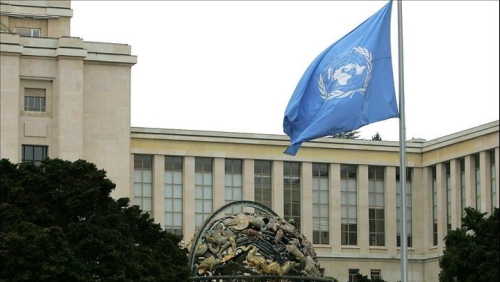Fiorello Cortiana pubblica su Facebook una sintesi di quanto l'ONU abbia fatto per creare e diffondere i "diritti Internet" dei cittadini del mondo. Vengono cioè riconosciuti i diritti umani anche nello spazio pubblico digitale di internet.
E' un passo epocale a cui tutti i Paesi dovrebbero aderire. Anche in Italia si sta animando una campagna per introdurre nella Costituzione questi principi di diritto all'informazione ed allo spazio digitale in Internet.
Ora abbiamo un quadro di riferimento internazionale per difendere Internet da incompetenti e prevaricatori di ogni tipo.
Metto in sequenza il prodotto della Dynamic Coalition che abbiamo promosso dentro l'Internet Governance Forum-IGF dell'ONU come attivazione della campagna per l'Internet Bill of Rights e la risoluzione dello Human Rights Coucil che riconosce e garantisce i Diritti Umani anche nello spazio pubblico digitale di Internet.
Ora un cittadino europeo può rivolgersi alla Corte Europea dei Diritti dell'Uomo laddove ritenga leso una sua libertà fondamentale sancita nella Dichiarazione Universale dei Diritti dell'Uomo. Credo che prenda positivamente corpo il processo evolutivo che abbiamo avviato con la nostra proposta, multilevel e multistakeholers, per l'Internet Bill of Rights
Internet Rights & Principles CoalitionIRP Charter Website Main menuSkip to primary contentSkip to secondary content IRP campaigns 10 INTERNET RIGHTS & PRINCIPLESThis document defines ten key rights and principles that must form the basis of Internet governance. They have been compiled by theInternet Rights and Principles Dynamic Coalition (IRP), an open network of individuals and organisations working to uphold human rights in the Internet environment. The principles are rooted in international human rights standards, and derive from the coalition’s emerging Charter of Human Rights and Principles for the Internet. The Internet offers unprecedented opportunities for the realisation of human rights, and plays an increasingly important role in our everyday lives. It is therefore essential that all actors, both public and private, respect and protect human rights on the Internet. Steps must also be taken to ensure that the Internet operates and evolves in ways that fulfil human rights to the greatest extent possible. To help realise this vision of a rights-based Internet environment, the 10 Rights and Principles are: 1) UNIVERSALITY AND EQUALITY 2) RIGHTS AND SOCIAL JUSTICE 3) ACCESSIBILITY 4) EXPRESSION AND ASSOCIATION 5) PRIVACY AND DATA PROTECTION 6) LIFE, LIBERTY AND SECURITY 7) DIVERSITY 8) NETWORK EQUALITY 9) STANDARDS AND REGULATION 10) GOVERNANCE The Human Rights Council, Guided by the Charter of the United Nations, Reaffirming the human rights and fundamental freedoms enshrined in the Universal Declaration of Human Rights and relevant international human rights treaties, including the International Covenant on Civil and Political Rights and the International Covenant on Economic, Social and Cultural Rights, Recalling all relevant resolutions of the Commission on Human Rights and the Human Rights Council on the right to freedom of opinion and expression, in particular Council resolution 12/16 of 2 October 2009, and also recalling General Assembly resolution 66/184 of 22 December 2011, Noting that the exercise of human rights, in particular the right to freedom of expression, on the Internet is an issue of increasing interest and importance as the rapid pace of technological development enables individuals all over the world to use new information and communications technologies, Taking note of the reports of the Special Rapporteur on the promotion and protection of the right to freedom of opinion and expression, submitted to the Human Rights Council at its seventeenth session,[1] and to the General Assembly at its sixty-sixth session,[2] on freedom of expression on the Internet, 1. Affirms that the same rights that people have offline must also be protected online, in particular freedom of expression, which is applicable regardless of frontiers and through any media of one’s choice, in accordance with articles 19 of the Universal Declaration of Human Rights and the International Covenant on Civil and Political Rights; 2. Recognizes the global and open nature of the Internet as a driving force in accelerating progress towards development in its various forms; 3. Calls upon all States to promote and facilitate access to the Internet and international cooperation aimed at the development of media and information and communications facilities in all countries; 4. Encourages special procedures to take these issues into account within their existing mandates, as applicable; 5. Decides to continue its consideration of the promotion, protection and enjoyment of human rights, including the right to freedom of expression, on the Internet and in other technologies, as well as of how the Internet can be an important tool for development and for exercising human rights, in accordance with its programme of work.
|


